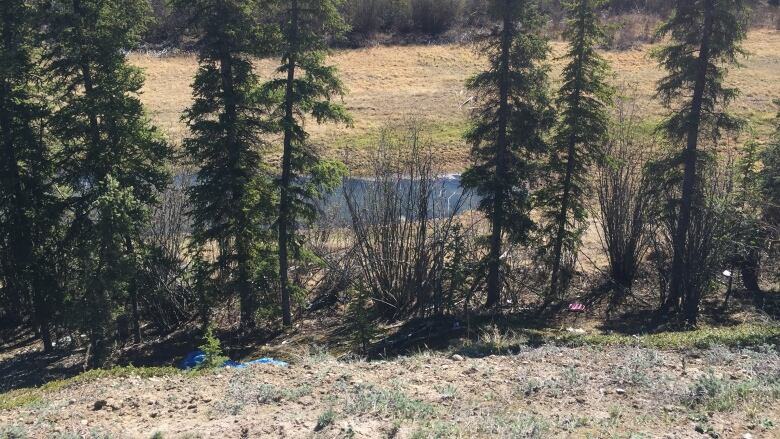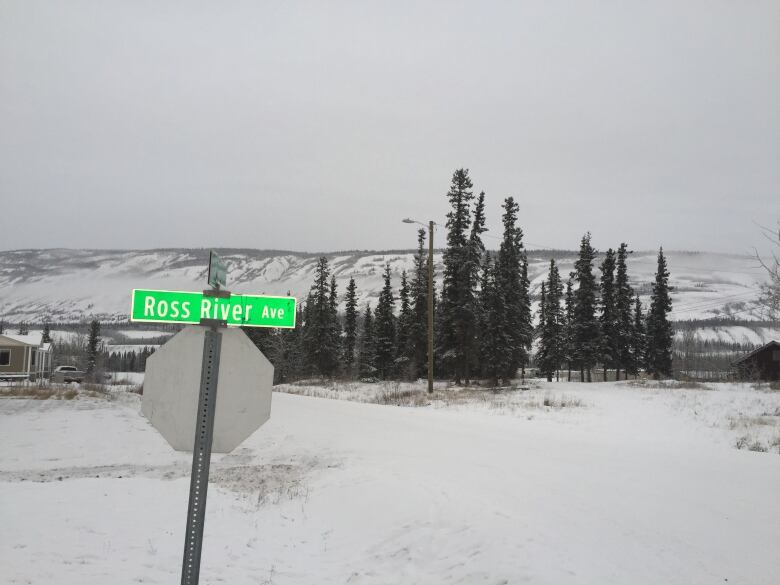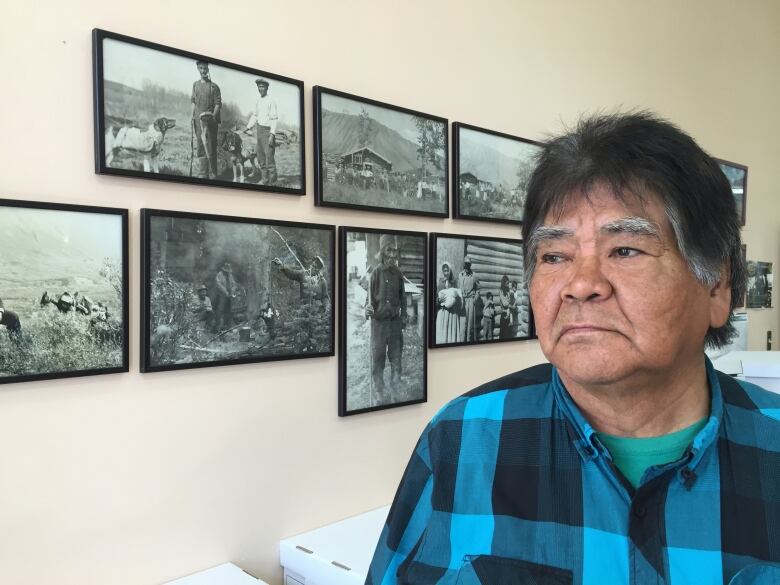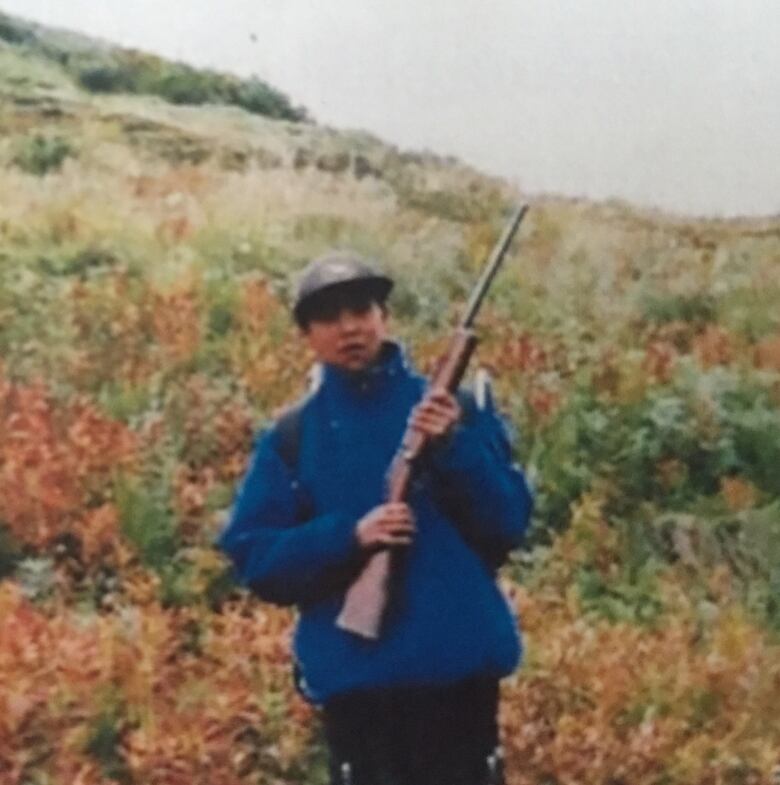Odd silence greets a public safety crisis in Ross River, Yukon
Ross River Dena Council chief says the First Nation can't deal with it alone

The community of Ross River is grappling with a severe public safetycrisis, following the Yukon coroner's confirmation this weekthat22-year-old Shane Gladawas killed by "feral or semi-domesticated" dogs there last October.
It's a crisis now, but the problem with dogs is a chronic one for this remote Kaskacommunity.
Coroner Kirsten MacDonaldlaterechoed by the territory'schief veterinariantold the sombre residentsgathered in a large circle in the school gym on Mondaythat she wantsan "organic solution"to let the community "take the lead."

That sounds well and good, perfectly in line with a renewed focus on localautonomy and self-determination.
But is it a realistic expectation?
Community struggles to provide basic services
Ross River struggles to provide the most basic, day-to-day services.
For example, there hasn't been a daycare in the community for several months,because no one will serve on a daycare society board of directors.
There's no volunteer fire department, for the same reason there's no one to serve on it.
The Yukon government is well aware of the paucity of human resources.So how does it really expect Ross River to deal with an urgent public safety crisis?

Meanwhile, people in the community continue to cope as best they can with the ongoing threat of being attacked by dogs.
Some have taken to carrying big sticks when they're walking, particularly at night.Hockey sticks seem to be a preferred defensive weapon.
Elders are fearful, parents worry, and no one feels safe.
TheRCMPcan't even confirm whether all of the dogs that killedGladahave been destroyed.
Macdonald came to the community to have an open, face-to-face discussion abouthow to avoid a future tragedy.Yukon's chief veterinarian, Mary Vanderkop, was also at the meeting on Monday.
So too were three RCMP officers and the conservation officer from the nearby communityof Faro all of whom contributed little to the discussion.
But the most glaring silence has been that from the Yukon government's cabinetoffices.
'MLA hasn't called or anything'
That silence has not gone unnoticed by Ross River Dena Council chief Jack Caesar. He says he'sheard nothing from anyone in eitherthe community services or environment departments.
I think Yukon, in a way, is responsible to the cry from the community- Ross River Dena Council chief Jack Caesar
He hasn't even heard from the elected representative for Ross River, MLA StacyHassard.
"MLA hasn't called or anything. We've had no response from the government at all. Silence on their part, let's put it that way," Caesar said.
Caesar noted that Yukon Premier Darrell Pasloskioftenspeaks of "reconciliation" with First Nations. He believes a good start would be offeringsupport on the urgent issue of dogs.
Caesar said the Yukon government walked away from a program in 2010, in which the Dena Council and the Yukon government were working together to find a lasting, effective solution to the chronic problem of feral dogs.

He says the Dena Council asked many times to revive the program, because the problem persists.
"I think Yukon, in a way, is responsible to the cry from the community," Caesar said.
Public largely silent on death
Then there's the curious lack of public outrage over the death.
A man was killed and eaten by dogs in a Yukon community.
This thankfully is not an everyday occurrence in Yukon.
But the Yukon government isn't the only silent party in this sadaffair. The public has also been largely mute.
Glada's family hassome theories about that.
"In my opinion, racism is alive and well, and Ross River just seems to get overlooked. [Glada]was a native person from Ross River, and it's just brushed over," said Glada's aunt, Kathlene Suza.
His uncle, Gord Peter, was equally blunt.

"If Shane was a white person from a good community and a good family, you know, things would have been done right away," he said.
Peter doesn't want the details of Glada's death to be sanitized.
He says his nephew's body was "completely eaten from the shoulders down. All that really was left was his head and his neck."
Peter wants people to know just how seriousthe situation is, and he wants action from whoever can give it.
He doesn't much care if it comes from the First Nation, the Yukon government,the RCMP, or a combination of all three.
He wants to see real and immediate change as a result ofShane Glada's horrific death.
That's probably something the Yukon public should want, also.












_(720p).jpg)


 OFFICIAL HD MUSIC VIDEO.jpg)
.jpg)



























































































